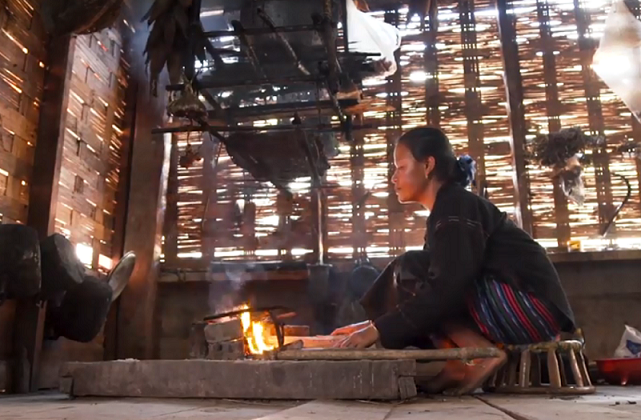News & Updates
How stoves are tackling health, environment and gender equality issues in Lao DPR
24 April 2018

The World Bank, in partnership with the Energy Sector Management Assistance Program (ESMAP), is replacing over 50,000 charcoal and wood burning stoves in Lao PDR.
The stoves will be replaced with clean, energy-efficient and smoke free cooking stoves.
The first recipients of the stoves will be schools with feeding programmes.
Cooking on open fires is a significant health problem in Lao PDR, and other low income countries.
For example, exposure to household pollution causes 3-4 million premature deaths each year and is a major cause of stunting and low weight in new born babies.
In Lao DPR, the pollution from cooking stoves disproportionately effects women and children.
96% of families in Laos DPR are exposed to the pollution, and it is responsible for two thirds of respiratory deaths in children.
Comparatively, a typical wood burning stove will emit the same level of smoke in one hour as 300-400 cigarettes.
On average, women spend three times more time on domestic work and childcare than men, making them key agents for change in the uptake of new technologies.
The project is also being praised for the benefits it will bring to women and increasing gender equality.
Aid donors, foundations, trusts and philanthropists are being invited to provide results based funding to support the project and reduce the cost of the stoves.
Only when specific goals, such as reduced cooking time or reduced respiratory issues, have been achieved will the investors contribute their funding.
The project in Lao DPR could be a turning point for cooking technologies, as previous technologies have not met the multiple demands of energy-efficiency, safety, affordability, durability and low cost.
The stoves that the World Bank is distributing in Lao PDR have been awarded the highest certification for reducing household air pollution as it reduced C02 and particle emissions by 99% compared to open fires.
In addition, they will be cheap to use as they burn biomass pellets or crop waste and are highly efficient, reducing fuel use by 90%.
The project will also be funded by a unique financial model where the stoves are purchased by a private investor as part of an Emissions Reduction Purchase Agreement between Lao DPR and the carbon market.
The reduction in greenhouse gas emissions, due to the stoves, will be offered as carbon credits. These will reimburse the original investor and lower the cost of the stoves.
If you’d like to stay informed on the latest updates in aid and development, please sign up for the AIDF newsletter.
Image credit: World Bank